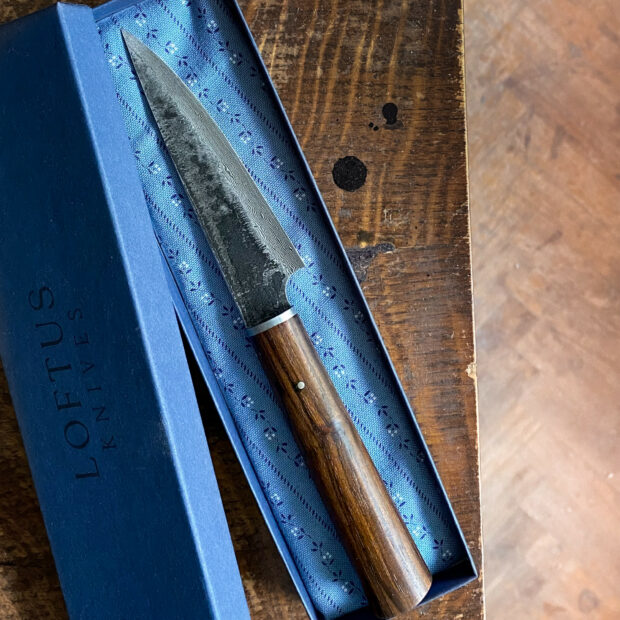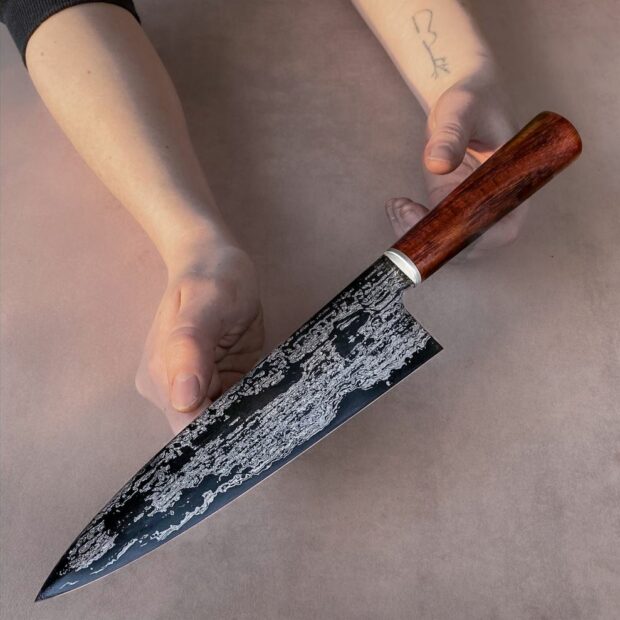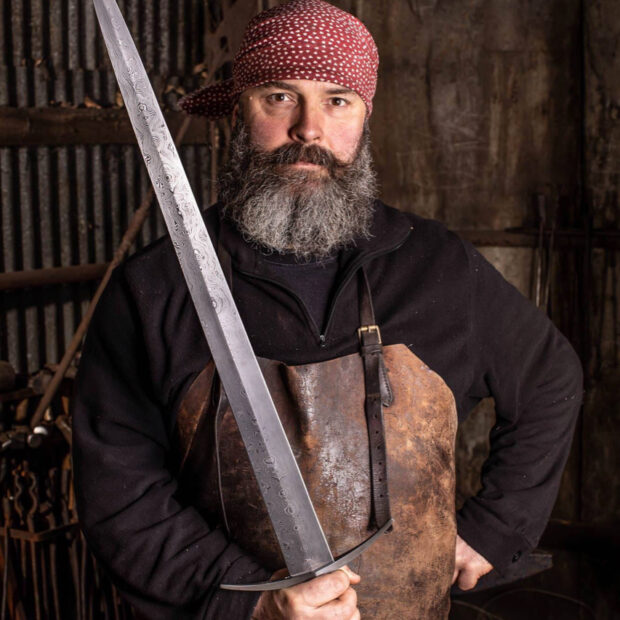International Women’s Day 2024: Holly Loftus profile
8th March 2024
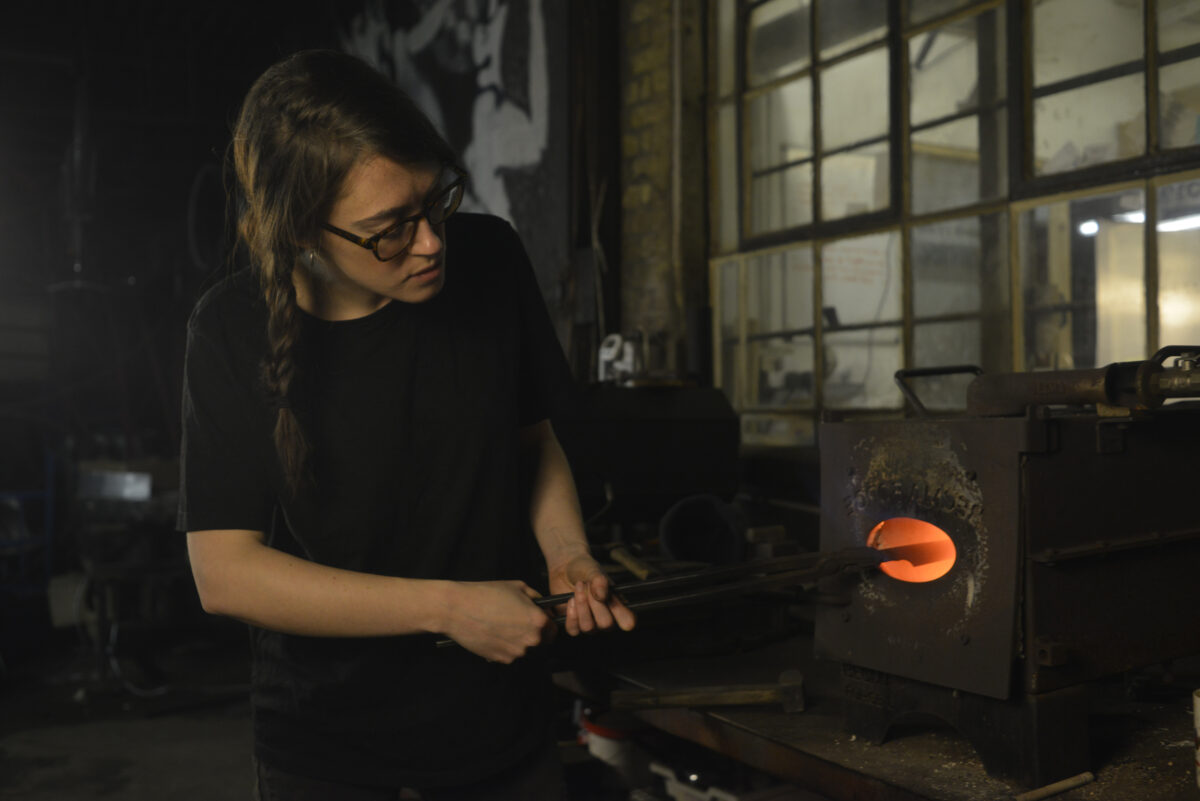
This International Women’s Day, QEST is celebrating the achievements and careers of our makers across the UK.
Holly Loftus is a 2022 QEST Garfield Weston Foundation Scholar and talented knifemaker, originally from Ireland but now based at Cockpit Studios in London.
In fact, Holly is one of the only women in Britain making hand-forged culinary knives professionally.
QEST sat down with Holly for a Q&A, exploring her journey into knifemaking, how she fell in love with her craft, challenges in the industry and how aspiring makers can get their foot in the door.
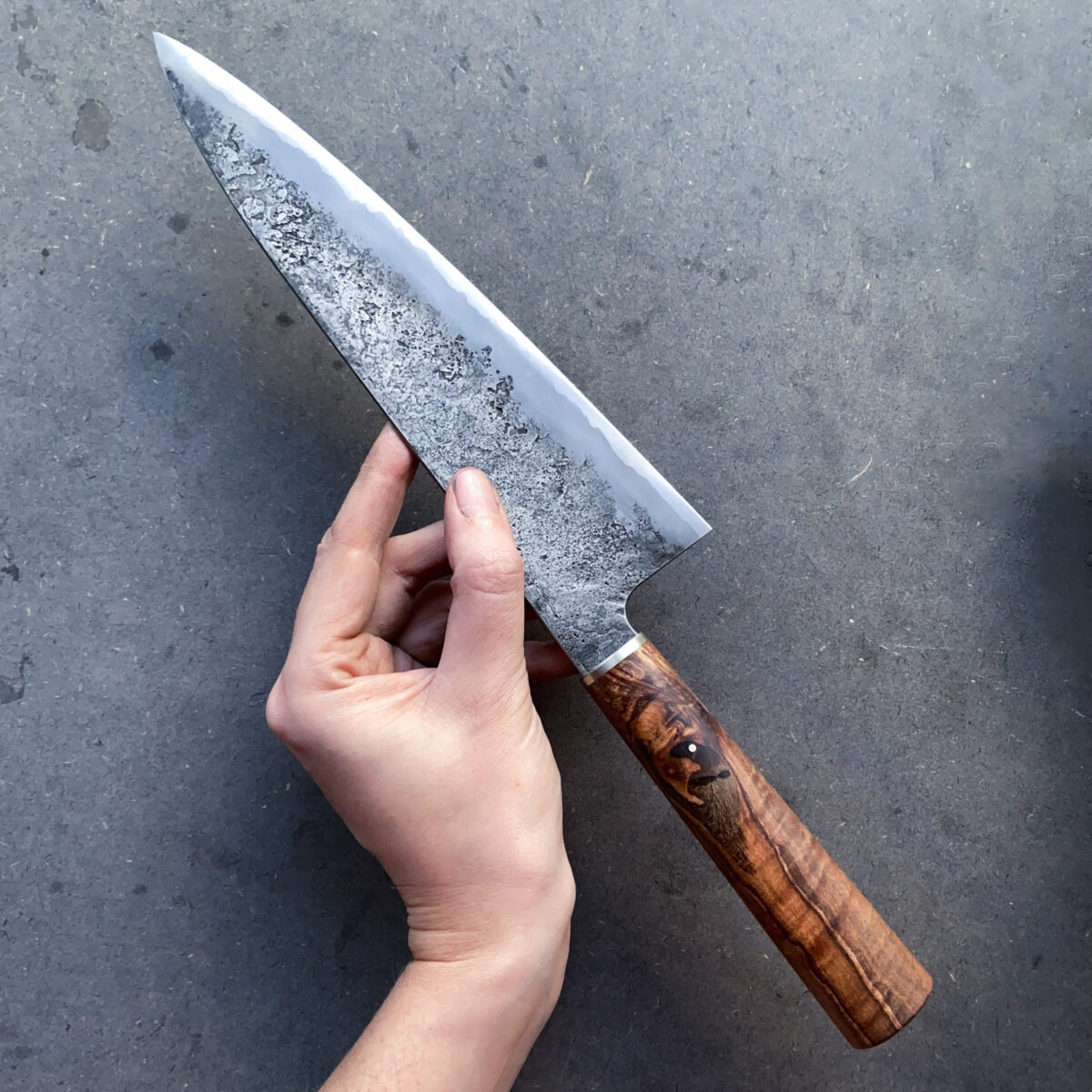
QEST: How did you discover knifemaking and how did you turn it into a career?
Holly: It’s been over a decade since I started thinking about bladesmithing. I got completely drawn into the idea of making something so utilitarian by hand, but with no previous experience in craft, no experience making anything at all, it took me a long time to figure out how to get started.
I would trawl through knifemaking forums and watch YouTube tutorials but my first proper go at forging was on a one-day class in 2016 with QEST Scholar Owen Bush at his school in Welling.
When I left at the end of that day with my first forged knife in hand, I knew I wanted to make knives full time and I knew I wanted to forge them, but there was no obvious next step. In the UK there are no routes into knifemaking outside of factory production – no formal apprenticeships, no professional training, so I had to figure out my own path.
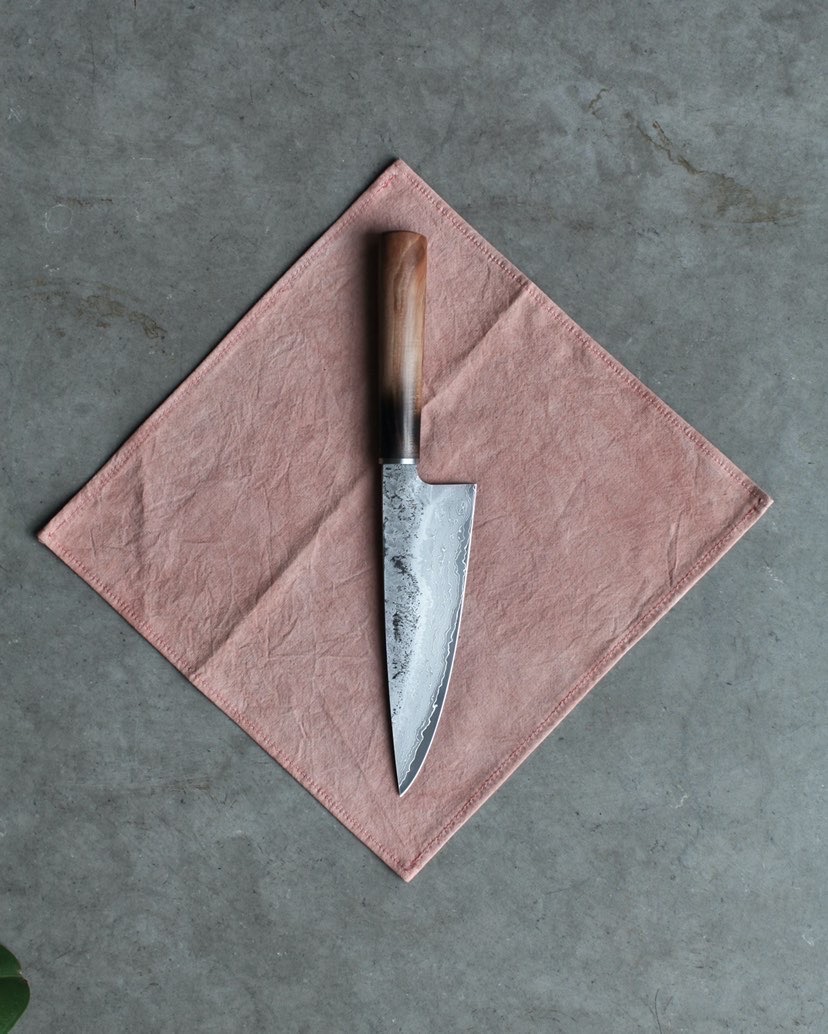
My real ‘in’ came a couple years later when I found a City & Guilds course in Forgework. Doing the course meant moving to Scotland for six months which wasn’t an easy decision at the time, especially given that the course was for farriers and didn’t cover knifemaking at all! But it was a start and doing well on the course gave me the confidence I needed to apply for work in the field.
I then spent three years working for Blenheim Forge before going full time with my own business in 2020, Loftus Knives.
Q. What were you doing before you found knifemaking?
H. I was a community worker, supporting individuals and communities to improve their quality of life.
There was a creative side of me that I wanted to make space for in my life. I think the values that motivated me in community work have carried through to my work now – like supporting opportunities for those who haven’t considered or don’t feel able to access careers in craft.
Last year, QEST Scholar Daisy Tempest and I co-founded an award for early career makers. Together we hand crafted a chef knife and raffled it, raising an incredible £10,000 in donations – all of which went to support an emerging craft talent, giving them a fully subsidised studio in London with business support and an equipment bursary.
Q. How is your business going now?
H. It’s going really well – the interest in my work has been amazing and being based at Cockpit Studios in London has raised my profile.
It takes me about a month to make ten knives and once I have them ready I sell them via my email newsletter. They’ve been selling out in less than five minutes!
My customers are mostly in the UK, Ireland, Canada and the US. A mix of women and men are interested in my knives, mainly home cooks and chefs. A lot of people buy them for wedding and birthday gifts.
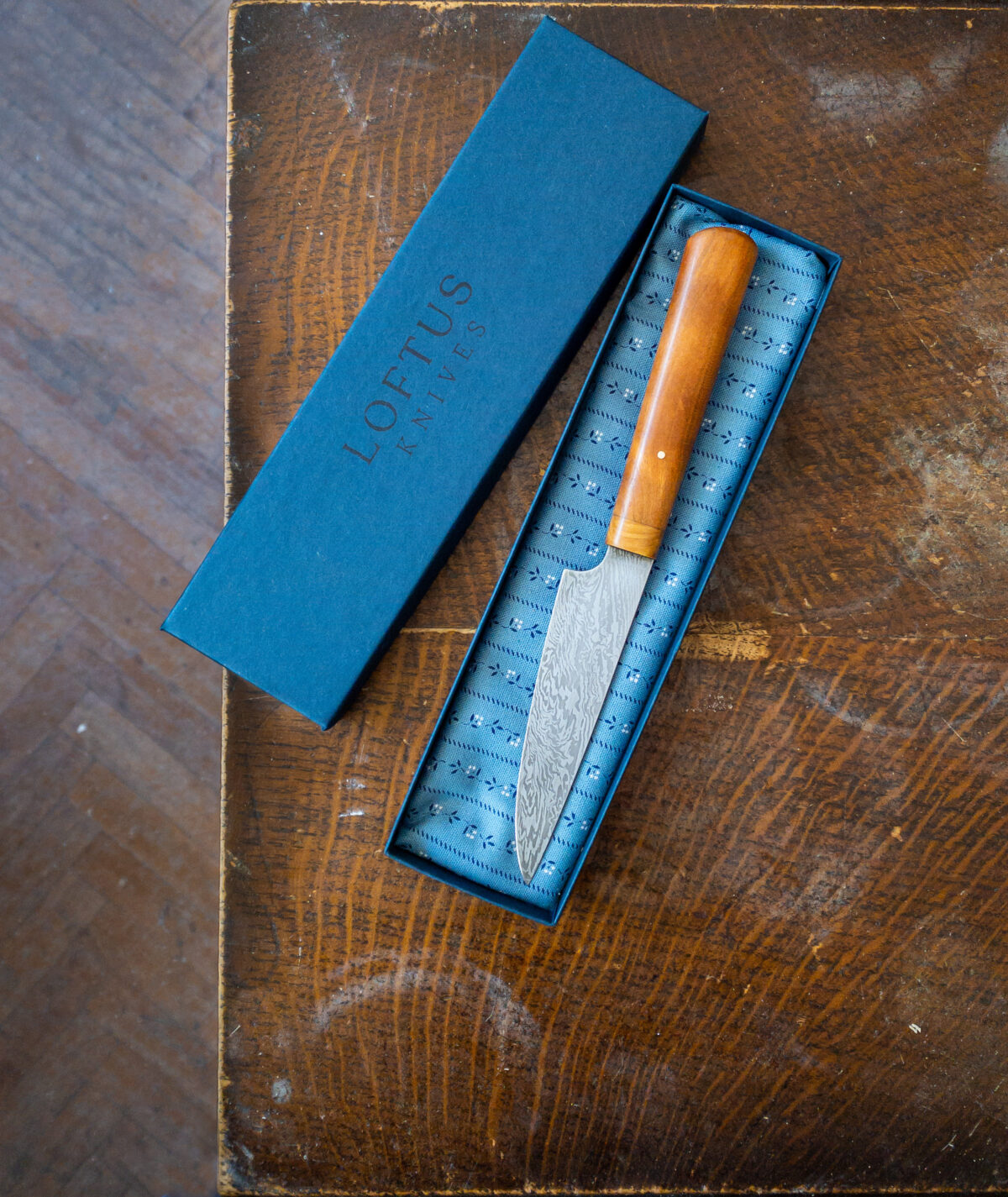
Q. Selling all your knives in five minutes is impressive. Why do you think people are so interested in them?
H. More than anything, I think people can see I really care about what I’m doing. Unlike most shop-bought knives which are produced by machines that stamp out blade shapes from large sheets of steel like a cookie cutter, my knives are hand-forged as close to their final form as possible.
They’re entirely handmade in-house, entirely by me: from sourcing the materials to forging the blades to making the handles to sharpening the knives.
I make blades using high-carbon steels known for holding a great edge and fit them with my own handles made from local timbers, mostly from storm fallen or felled London street trees.
Q. What do you enjoy about your craft?
H. I love forging! Taking steel, this cold hard material, and heating it so hot that it becomes malleable like plasticine, then transforming it with a hammer and anvil – it’s an amazing process.
Sharpening the knife at the end is also satisfying – I love giving it a last touch before I send it off to its new home.
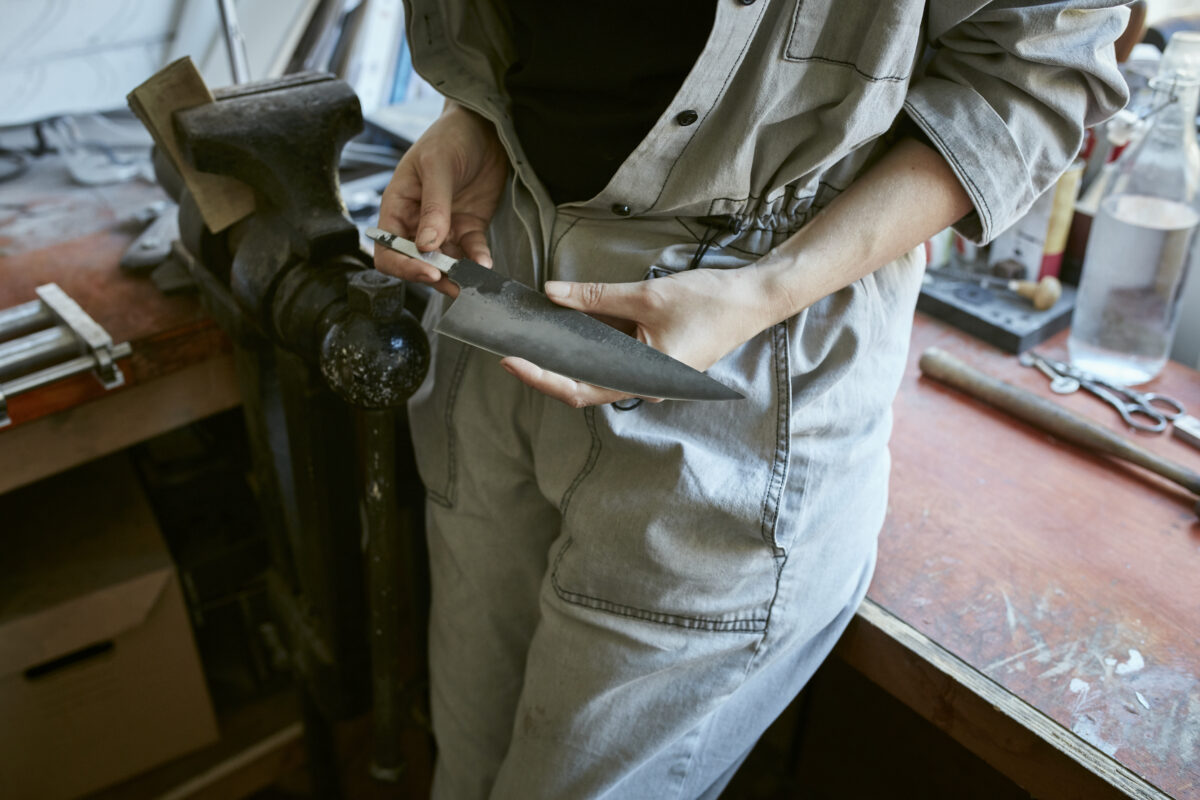
Q. Your QEST Scholarship led you to the US in 2022. How was the experience?
H. What QEST offers is so rare, it’s life changing. The autonomy makers have to design their own programme and be supported to do it is amazing.
My QEST Scholarship gave me the opportunity to train under three master bladesmiths, deep diving into their own specialisms. The first part focused on learning knife making in the American tradition (my own experience was largely based on Japanese methods), the second focused on metallurgy specific to blade steels, and the third focused on increasing my production capacity without compromising on quality.
I learnt so much during the 12 weeks and it showed me methods I need to practice over the next few years.
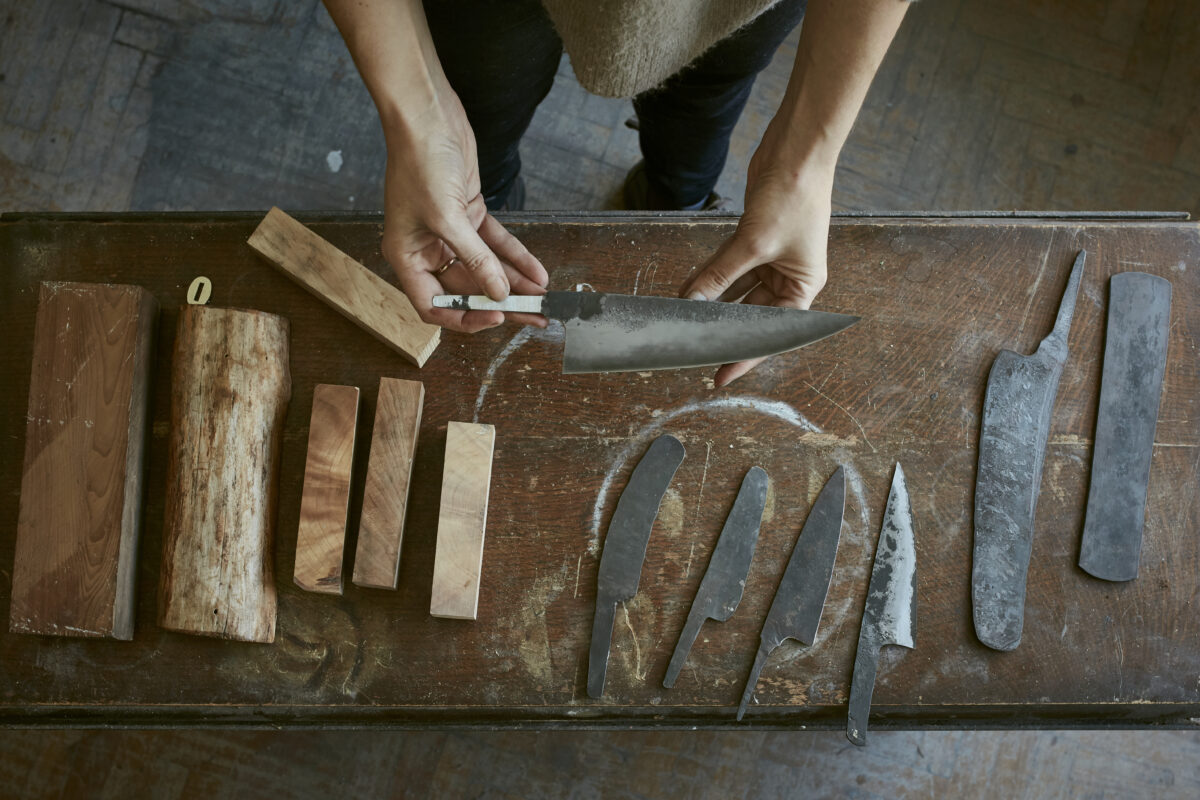
Q. How does it feel to work in a field that’s predominantly practiced by men?
H. It feels great! There are lots of incredible women blacksmiths around, less so in knifemaking but interest is steadily growing. Unfortunately, there’s an unhelpful stereotype of the blacksmith that’s a big, muscley man with a beard, which can be quite off putting if you don’t see yourself fitting that mould, but with the right tools and techniques anyone can become a blacksmith.
One of the biggest barriers isn’t to do with gender, it’s cost. It’s expensive to access equipment and professional level training, and for me, setting up a workshop while living in London was very costly too.
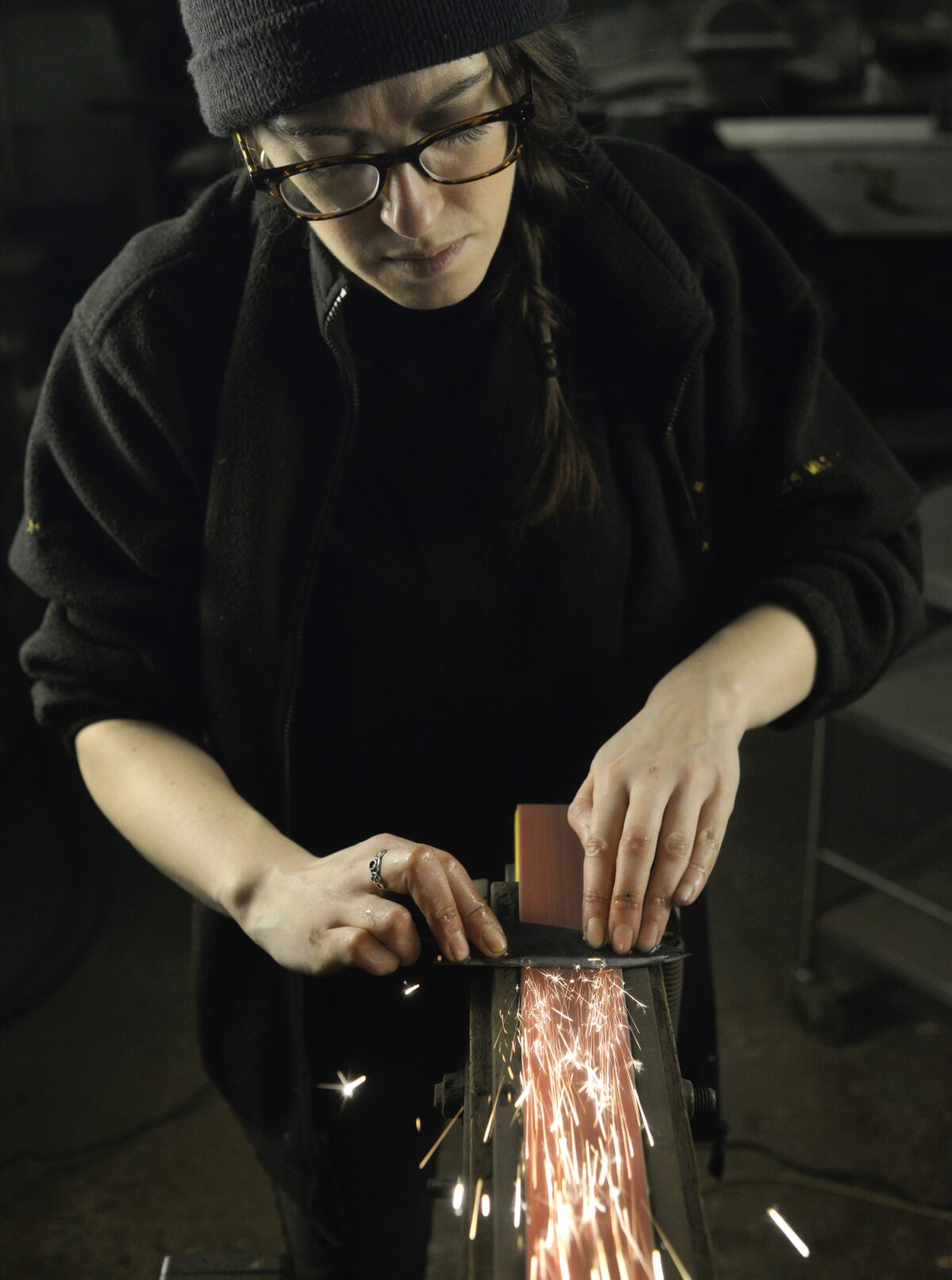
I was lucky to receive an award which meant my first year at Cockpit Studios was more affordable.
I think if more craftspeople knew about opportunities like Cockpit and QEST and applied for them, you’d see more women in crafts like mine.
Q. What’s your advice to those who want to make the leap into craft as a career, like you did?
H. Find a way to observe or try out a craft before you pursue it.
Experience days are fun, but don’t really reflect the reality of being a full time craftsperson. The QEST directory is a great resource to find really skilled makers.
If you can afford to, pay for a day to train with or observe someone. If you can’t, maybe you can offer to exchange skills you already have.
